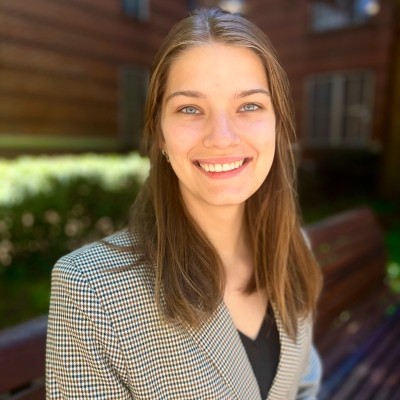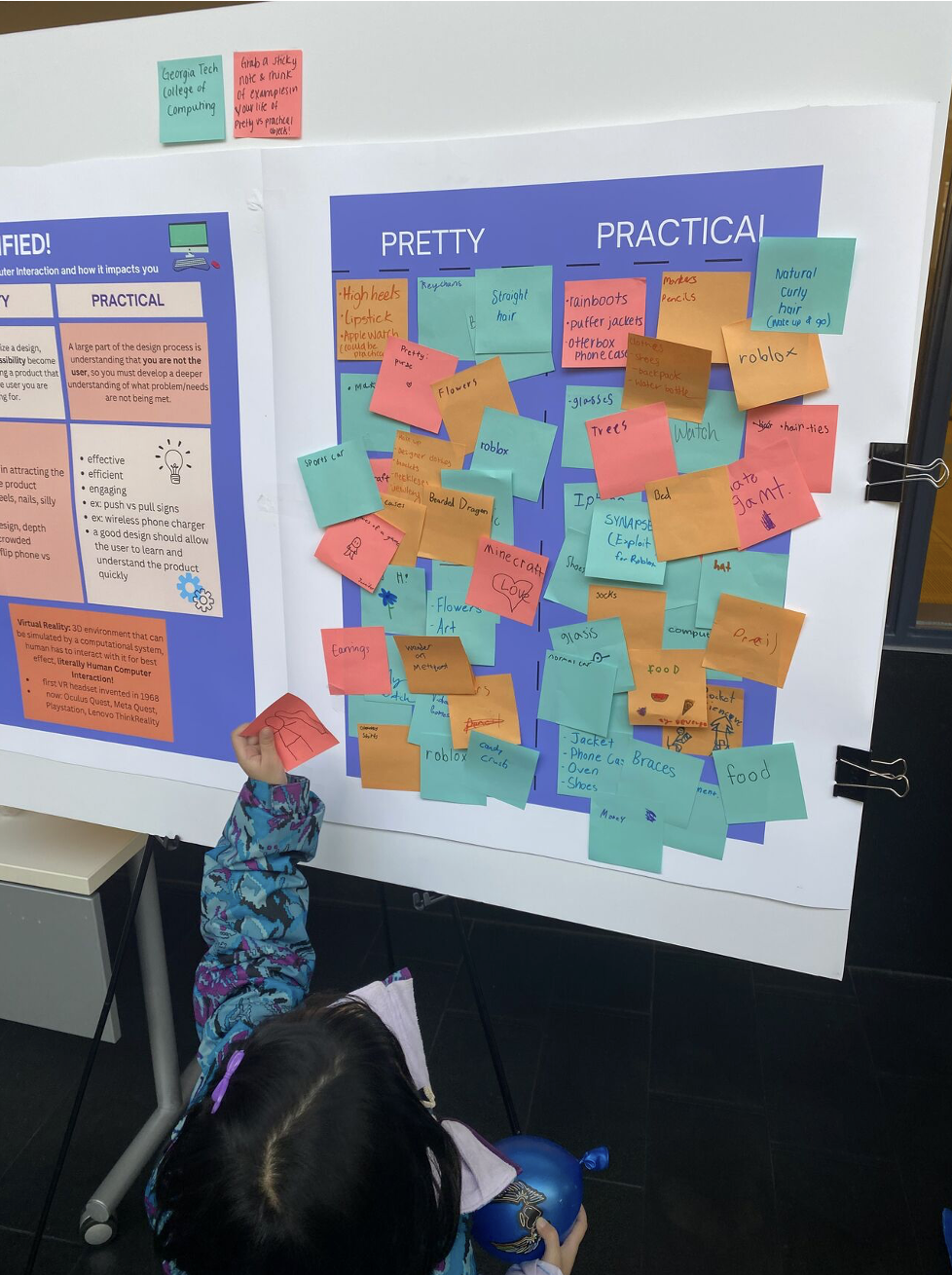Elizabeth Salisbury is a 5th-year Computer Science major studying fitness wearable technology for seniors with Dr. Rosa Arriaga.

How long have you been an undergraduate researcher at Georgia Tech?
I have been around since the spring semester of my freshman year, so that makes this semester my fourth year participating in a lab. As a 22 year old, it feels so surreal to say almost 20% of my life has been doing this!
How did you get involved with undergraduate research?
I got involved through the Helen Gurly Brown Research Fellowship. The fellowship is designed in a way to build a ladder of support for high school and college students interested in completing research in computer science. The premise is the top rung is a renowned research professor at Georgia Tech that welcomes a couple of college students into their lab to complete research and learn more about academia. The college students then in turn help the professor build and design a course for high school students to come to GT and learn about a topic in computer science like Robotics or Machine Learning. During my time with the fellowship, I was able to complete research in the HCI lab under Dr. Arriaga, and we developed a class similar to her Intro to User Interface Design. The fellowship gave me the support and confidence I was needing in the first two years at college. After I completed the program, my professor allowed me to stay on to complete my thesis and continue volunteering with other students’ projects.
What are you working on?
Since I have been in the lab, I have been able to work on several different projects including PECSS (Prolonged Exposure Collective Sensing System) and DUCSS (Diabetes Ubiquitous Computational Sensing System). I am currently completing my thesis on how activity-tracking technologies can be used as a tool for seniors to exercise. My research is about how activity trackers, specifically fitness wearables, can often fail for seniors because of poor design. The technology is currently not meeting their needs in terms of accessibility and community, and it is important to create tools that are more than just usable. They need to be useful.

What is your favorite thing about research/researching?
I fell in love with talking to people about how they use technology. A large part of HCI is requirements gathering and how to be empathetic to the future users of technology in order to better design for the community. Through the hours of interviewing and tech help desk, I met and chatted with a rainbow of personalities and their technological problems. The problem solving was very satisfying, and it taught me a lot about how people think and develop intuition around technology.
What are your future plans and how has research influenced them?
There are two valuable lessons I learned while completing research. The first being a phrase I learned from Dr. Arriaga. She would say, “In order to take from a community, you have to give first.” This phrase would usually come at the beginning of a semester with new researchers to explain why it was important to volunteer with the communities we would be interviewing. It has turned into a mantra of sorts for me. It can be applied to many situations and relationships I have, or will, develop, and it reminds me to reflect on my actions first. The second lesson I learned is behind every piece of technology there is a human mind. So by developing technologies to be useful and usable, scientist are showing a reflection of humanity and society in what they are building. In an oddly similar way, the same scientists can turn mechanical, and we forget to take care of ourselves. By coding, reading, and writing for hours on end, I lost balance many times throughout, and I became a robot. Now, I have developed systems to remind myself that I am more than what I can produce.
With these lessons in mind, I plan to continue finding ways to be in my community and helping where I can. When I graduate in December, I will enter into the industry, but I have not completely shut out the idea of coming back here for more!
What advice do you have for students who want to be undergraduate researchers?
My top advice is to tap into the huge community of other undergraduate researchers! By engaging in discussions about ideas and methods with peers, I have been able to form relationships and sharpen my thinking. Moreover, some of the most valuable conversations I have had were with individuals outside of computer science. Discovering how similar questions can be asked across disciplines shows how truly interdisciplinary the nature of research is, so by being active in the community, it might be easier to have those "aha" moments.
